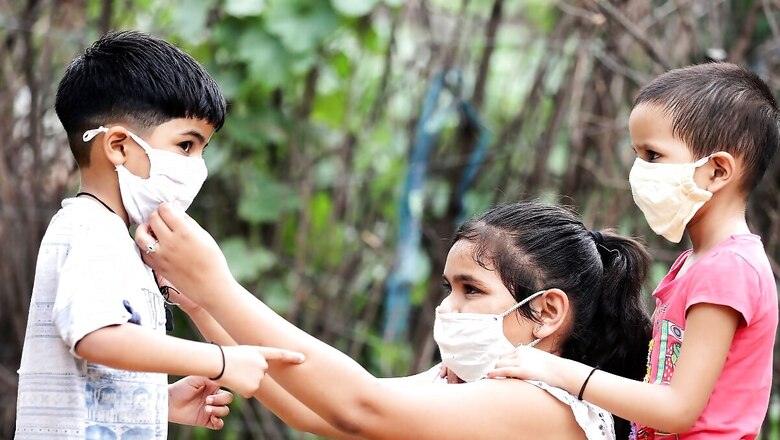
views
Cancer is increasingly affecting younger individuals, with air pollution playing a significant role in the trend, the oncology chief at Delhi State Cancer Institute (DSCI) told News18.
According to Dr Pragya Shukla, who leads the Clinical Oncology department at DSCI, there has been a noticeable change in the trend of cancer diagnosis. DSCI is an autonomous cancer care institution under the Government of NCT of Delhi with a footfall of 500 cancer patients on a daily basis, hailing from Delhi-NCR & other parts of North India.
Nowadays, Shukla said, individuals in the age group of 30-40 are being diagnosed with cancer, contrary to the typical pattern of 50-60-year-olds that prevailed a decade ago. “A decade ago, cancer was linked to ageing but now, we are diagnosing many young people with cancer in later stages.”
While there is no individual case study to link an individual’s cancer directly with air pollution, Shukla said there are numerous patients who are diagnosed despite having a clean background with no history of alcohol, tobacco or family track record of cancer.
The study conducted by Shukla and her team at DSCI showed that contrary to the Western trend, youngsters in India are being diagnosed with colon cancer which is reported to be of an aggressive nature. The available literature otherwise showed that the average age at the time of diagnosis hovers between 68 to 72 years. “The impact is clearly visible if we really want to see it,” she said.
“Children smoking cigarettes every day”
Children are extremely vulnerable to such toxic environments due to weak immune systems and faster division of cells in their bodies.
Shukla warned that the effects of these pollutants are carcinogenic and are entering the weak bodies of children. A carcinogen is a substance which is capable of causing cancer.
“The cancer cases may flare up one day in future and we may not be able to relate it to this toxic air,” she said, adding that such AQIs make children more susceptible to getting leukaemia and other kind of cancers later in life.
“Imagine we are making our children smoke cigarettes every day,” Shukla said while sharing an example of her own son who came back from basketball practice after feeling breathless.
“My son went for practice in an indoor, well-maintained stadium with air-purifiers installed. However, he came back in 15 minutes after feeling unwell.”
How does pollution make your body more susceptible to cancer?
From non-smokers to females, DSCI has been seeing many people being detected with lung cancer but it is not the only cancer that air pollution manifests.
“Lungs are the first point of contact for air pollution through which pollutants enter the human body which can alter with time and start acting carcinogenic.”
Through the lungs, the fine particulate matter enters the bloodstream — taking the pollutants to all organs. The pollutants also enter the upper gastrointestinal (GI) tract followed by the exposure of the stomach, liver, gall bladder and other organs.
When asked if the increase in the incidence of cancer among youngsters could be due to better diagnostics, Shukla disagreed, adding that “we are not catching people in early stages. It is the fallacy that screening and awareness have been linked to increased incidence”.
India’s apex medical research institute, the Indian Council of Medical Research, has also acknowledged that cancer presents a major and immediate public health concern in India, where it ranks third in terms of cancer cases, following China and the United States.
Yet, according to projections from the Global Cancer Observatory, India is anticipated to experience a significant 57.5 per cent surge in cancer cases from 2020 to 2040. “And air pollution is going to be one of the major contributing factors towards the projected increase,” Shukla said.
On Tuesday, Delhi experienced a modest enhancement in its air quality, moving from the ‘severe’ category to ‘very poor’ after five consecutive days of severely polluted conditions. According to figures by the Central Pollution Control Board (CPCB), the 24-hour average Air Quality Index (AQI) in Delhi registered at 395 on Tuesday, indicating a slight improvement compared to the previous day’s reading of 421.
Although there was a slight improvement, the PM2.5 concentration – which is recognised for its detrimental health impacts – significantly exceeded the government-mandated safe threshold of 60 micrograms per cubic meter. It reached levels that were 30 to 40 times higher than the healthy limit established by the World Health Organization (WHO).
















Comments
0 comment